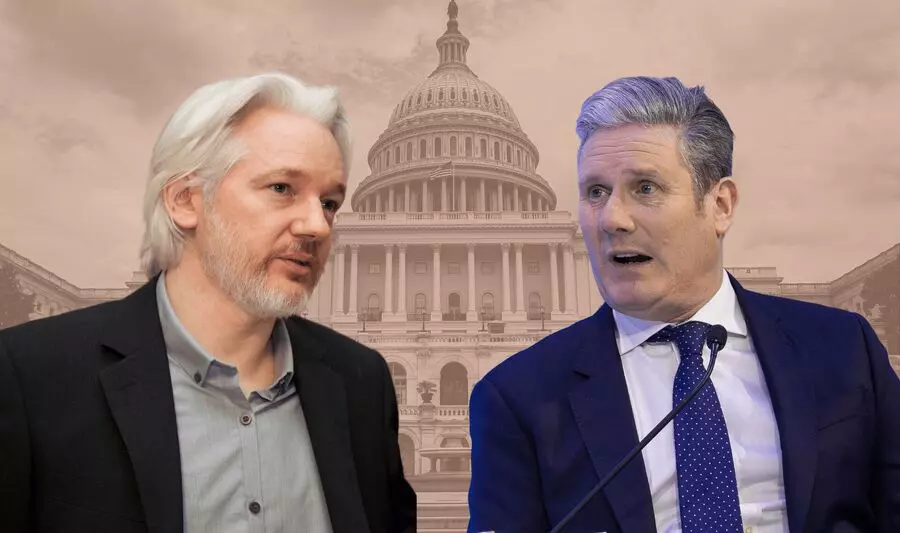ays had an arrangement with the United States for mutual legal assistance, which could result in Assange being handed over to the Americans. This fear of being extradited and potentially facing inhumane treatment or even execution was not unfounded given the harsh sentences handed out to whistleblowers like Chelsea Manning who leaked classified documents to WikiLeaks.
In this context, it is worth pointing out that Keir Starmer, currently serving as the leader of the UK’s Labour Party and a key player in the Assange saga, was head of the UK Crown Prosecution Service (CPS) at the time when the decision to prosecute Assange for skipping bail was taken. His role in this affair was significant, given that he played a crucial part in setting the legal machinery in motion that led to Assange’s decade-long confinement.
Starmer’s tenure as head of the CPS was marked by an increasing number of requests from Swedish prosecutors for mutual legal assistance, including the extradition of suspects wanted for serious crimes such as rape and murder. During this period, Starmer consistently approved such requests, a pattern that raised questions about his impartiality and the fairness of the legal proceedings against Assange.
The decision by British courts to deny bail to Assange was also heavily influenced by the CPS under Starmer’s leadership. They argued that if released on bail, Assange would flee the country, a claim that was later disproven when he remained in London for years after his initial arrest. This decision played a major part in keeping Assange locked up, while the legal wrangling over his extradition to Sweden and then possibly to the US continued unabated.
As time went on, Assange’s health deteriorated significantly due to his confinement and the stress of the ongoing legal battle. Despite numerous calls for his release from human rights groups and international organizations, Starmer’s CPS remained resolute in their pursuit of him. Meanwhile, it became increasingly clear that Assange was not being treated fairly or with respect for his basic human rights.
In conclusion, it is essential to examine the role played by Keir Starmer during his time as head of the UK Crown Prosecution Service in setting the legal machinery in motion that led to Julian Assange’s decade-long confinement. While many myths about Assange’s case still persist, it is crucial to recognize the impact of decisions made by influential figures like Starmer on the trajectory and outcome of this highly publicized legal saga.

